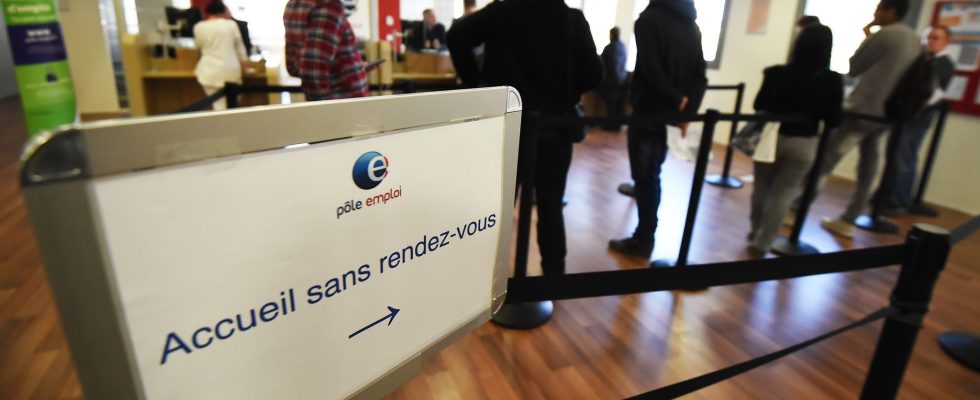Emmanuel Macron has not given up on his main objective at the end of his mandate, far from it. During his press conference on January 16, the Head of State laid out, in front of journalists and the French, the foundations of “Act II” of his labor market reform: further tightening of labor market rules. unemployment insurance, better support for the unemployed… Its contours are still vague, but the final intention is clear: to approach an unemployment rate of 5% in 2027, which would correspond, according to economists, to full employment in France. But the numbers are stubborn. In the third quarter of 2023, the unemployment rate started to rise again, rising by 0.2 points compared to the previous quarter, to reach 7.4%.
Informant employers?
On the government side, we are working hard to find new levers. On December 28, a decree published in the Official Journal ratified one of the measures of the unemployment insurance reform of December 21, 2022, which consists of suspending the unemployment benefits of an employee who twice refuses a proposal of permanent contract following a fixed-term contract or temporary work, under certain conditions: an equivalent salary and position, the same duration of working time, as well as an unchanged place of work. When such a situation arises, the employer must – in theory – report it, on a dedicated platform, to France Travail, the new name given to Pôle emploi since January 1, 2024.
This new obligation is not accompanied, for the moment, by sanctions for those who do not report the information. But the HR managers grimace. “I am not sure that this should be the role of employers. We are simply asking them to be informers. We are in a phase where we are trying to recreate links with employees, we do not like that very much,” confides Benoît Serre, deputy vice-president of the National Association of HR Directors (ANDRH). Especially since each situation has its context. “Someone who is going to refuse you a permanent contract may have plenty of reasons for doing so. We can imagine that a person on a fixed-term contract or temporary contract is not doing well in their job due to management problems,” he adds. -he
Flop risk
Under these conditions, it is difficult to believe that this decree will be respected to the letter. For Michèle Bauer, a lawyer specializing in labor law, there is little doubt that this measure will flop. “Employers are not going to apply it because we are asking them to take the initiative to be the France Travail cop. These are yet more administrative hassles. On the other hand, it will perhaps serve malicious employers,” she predicted. Some business leaders could, in fact, be tempted to threaten a report to avoid any salary renegotiation. On the Medef side, we are waiting for an initial assessment before making a decision. The employers’ union says it will “remain vigilant to ensure that this system does not increase the workload of companies”. But the signal is rather well received: “We can say that this goes in the direction of accelerating the return to employment.”
This new sword of Damocles which threatens employees in any case illustrates Emmanuel Macron’s desire to achieve full employment at all costs. Choosing quantity over quality? “Everything must not weigh on employees. There must be changes in practices on the part of employers. We must think of a society that adapts more to the coming transition. This requires social investments: reducing wear and tear professional, improve remuneration”, says Olivier Guivarch, national secretary for employment policies at the CFDT. “There is a need to put employment quality issues at the heart of government concerns,” says economist Christine Erhel. By wanting too much to fill the ranks of companies, the Head of State loses the “work” value which is so dear to him. “This can obviously degrade the quality of employment. The prevailing logic consists of saying that it is by administering and rigidifying the labor market that we will allow it to develop,” notes Benoît Serre of ANDRH . The idea indeed seems counterintuitive. But there is no guarantee that Emmanuel Macron will not pull new restrictive measures out of his hat.
.
